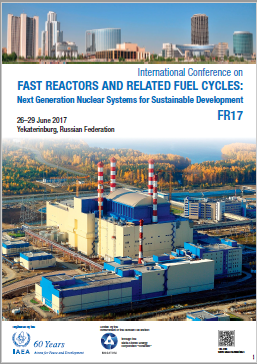Speaker
Mr
Venkatesan Arasappan
(Indira Gandhi Centre for Atomic Research)
Description
Recent advances in computer science have paved way to increased ease in design of nuclear power plants and imparting efficient operator training thereby improving the safety of nuclear plants. As nuclear power plant is considered safety critical, need to improve the skill set of the control room operators by getting the operator trained in simulator is becoming a mandatory requirement before commissioning the plant. Theoretical models, response and actions in control room panels/consoles, human reasoning etc. are simply not enough to impart full understanding of complex systems in reactor to the operators. Over the last few years, addition of 3D models along with the simulated control systems has gained wide attention in training simulators. Additional 3D models aid the operator in understanding the system and helps in quicker and more efficient training. One of the most important systems in Prototype Fast Breeder Reactor (PFBR) is its fuel handling system. It requires complex predefined sequential blind operations to be performed by the operator. Many of the operations are needed to be carried out in handling control room through panels and consoles. The skill set of the operator needs to be enhanced as the operations are critical and some of them are directly linked with the safety of the nuclear reactor. This paper covers the details of PFBR Full Scope Replica Simulator, various 3D models developed for Fuel handling System along with their associated process and logic models. The sequential procedure based on interlocks and the responses of the 3D fuel handling component models to the operator actions in simulator are also elaborated.
Country/Int. Organization
India/ Indira Gandhi Centre for Atomic Research, Kalpakkam
Author
Ms
Sankar Bindu
(Scientific Officer)
Co-authors
Mr
Jaideep Chakraborty
(Indira Gandhi Centre for Atomic Research)
Mr
Jehadeesan R
(Indira Gandhi Centre for Atomic Research)
Mrs
Jemimah Ebenezer
(Indira Gandhi Centre for Atomic Research)
Mr
Madhusoodanan K
(Indira Gandhi Centre for Atomic Research)

